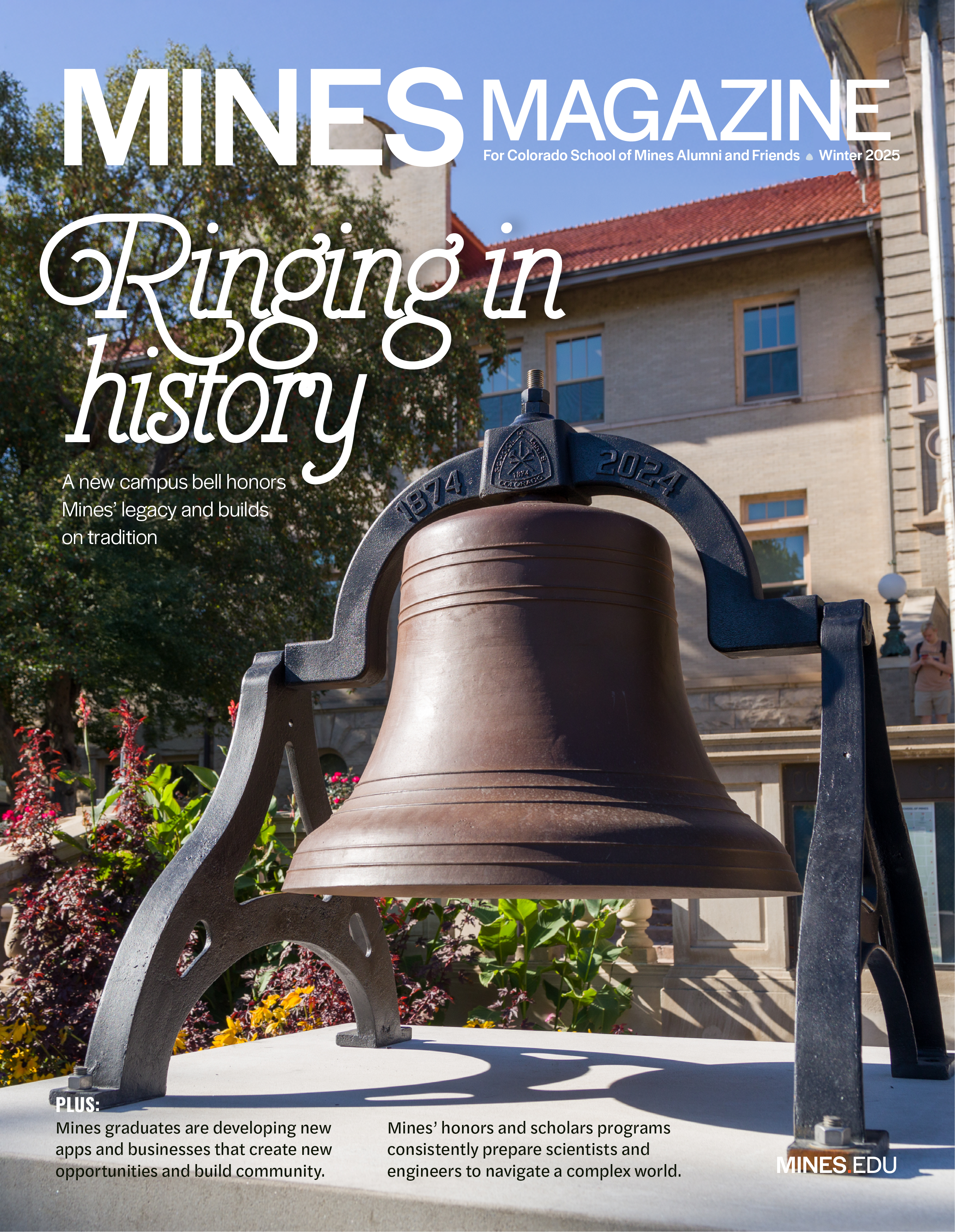Wonder women: Mines alumnae are succeeding in STEM fields and encouraging positive change in the workplace
It’s 2018, and women are changing what it means to work in STEM.
This year, Mines graduated its highest number of women to date: 420 received a bachelor’s, master’s or doctorate degree. Still, women comprise only 29 percent of the student body—slightly more than are represented in the STEM field as a whole.
According to the “STEM Jobs: 2017 Update” report by the U.S. Department of Commerce’s Office of the Chief Economist, women currently represent more than 50 percent of the college-educated workforce in the United States but only 25 percent of college-educated workers in STEM.
As in many industries, women in STEM report facing challenges due to their gender, from being overlooked for promotions or not taken seriously in meetings to shouldering the burden of balancing work and family.
Mines has an initiative to increase the percentage of female students over the next several years, and many women currently working in STEM field are doing everything they can to make the workplace better for upcoming women.
Mines alumnae are a part of that effort, using the tools and values they learned at Mines, not only to help them succeed in their careers but also to make the changes they want to see in the field.
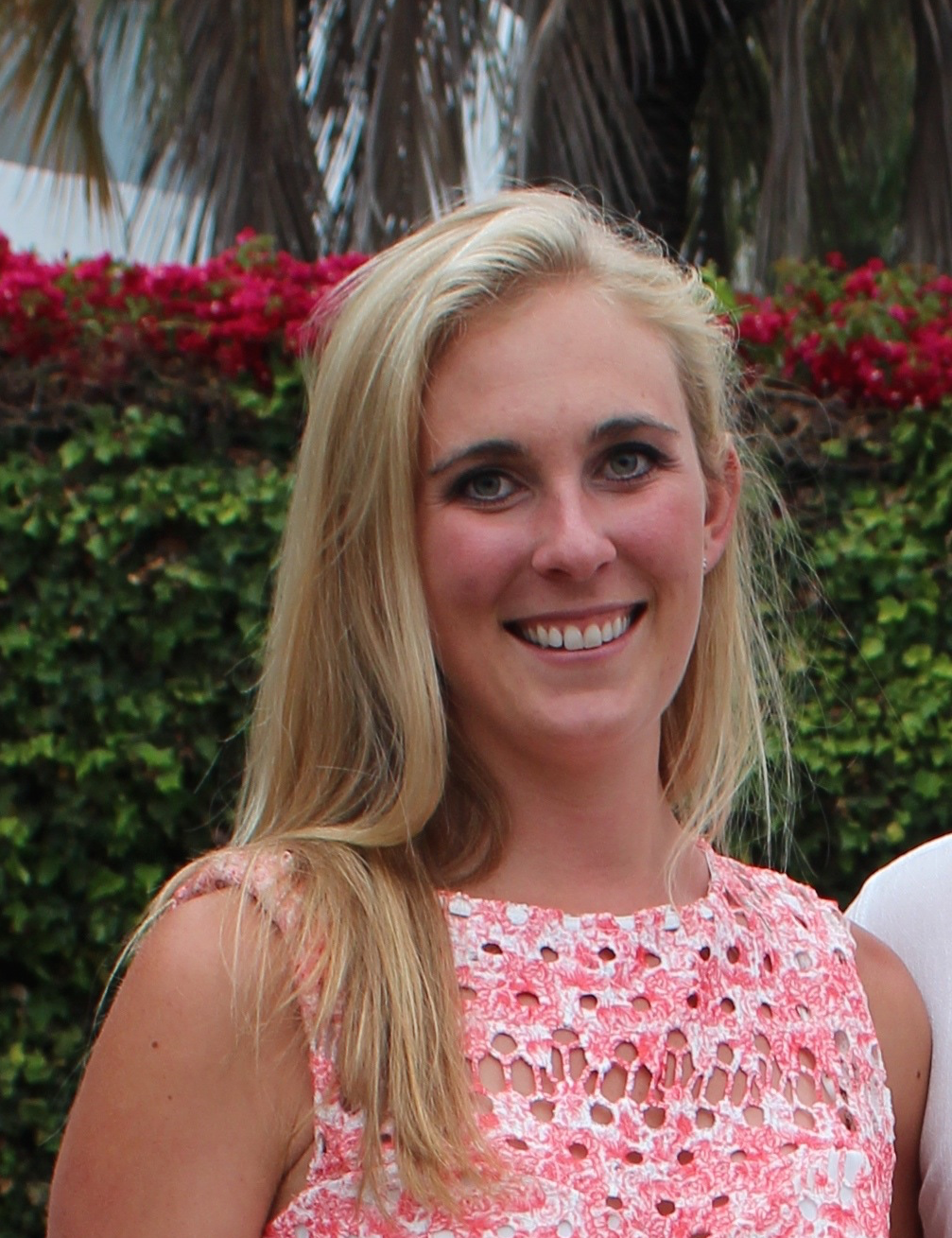
a push for sustainability
Growing up in Colorado and California and living next to mountains or the ocean her entire life, Christina Volpi ’12 said she “always had an innate desire and purpose” to help conserve the planet’s natural resources.
“From day one, my ultimate goal with a career was to be able to alleviate the stressors that people are putting on the environment,” Volpi said. Using her bachelor’s degree in geological engineering from Mines, as well as a master’s in oceanography from California State University’s Moss Landing Marine Laboratories program and an MBA from University of Colorado Denver, Volpi is finally doing what she set out to do.
“I wanted to be able to pair my technical background with the business side of things to more effectively communicate to decision-makers and to eventually become one of those decision-makers, making energy-efficient solutions and resource conservation decisions,” she said.
For the last few years, Volpi has been contracting with various companies to develop structured plans to increase sustainability, including working as a renewable energy markets and policy analyst at the National Renewable Energy Laboratory and conducting a sustainability study for the Denver Zoo. She is now looking for more permanent roles that similarly involve making sustainable changes at a structural level.
Unlike many other STEM-related fields, the sustainability industry has more women than men, and Volpi said she hasn’t run into the same challenges as some of her female peers. Still, she believes diversity on project teams is important. “If you have just one type of person who has been trained in the same way, you’re not going to bring any innovation to the table,” she said.
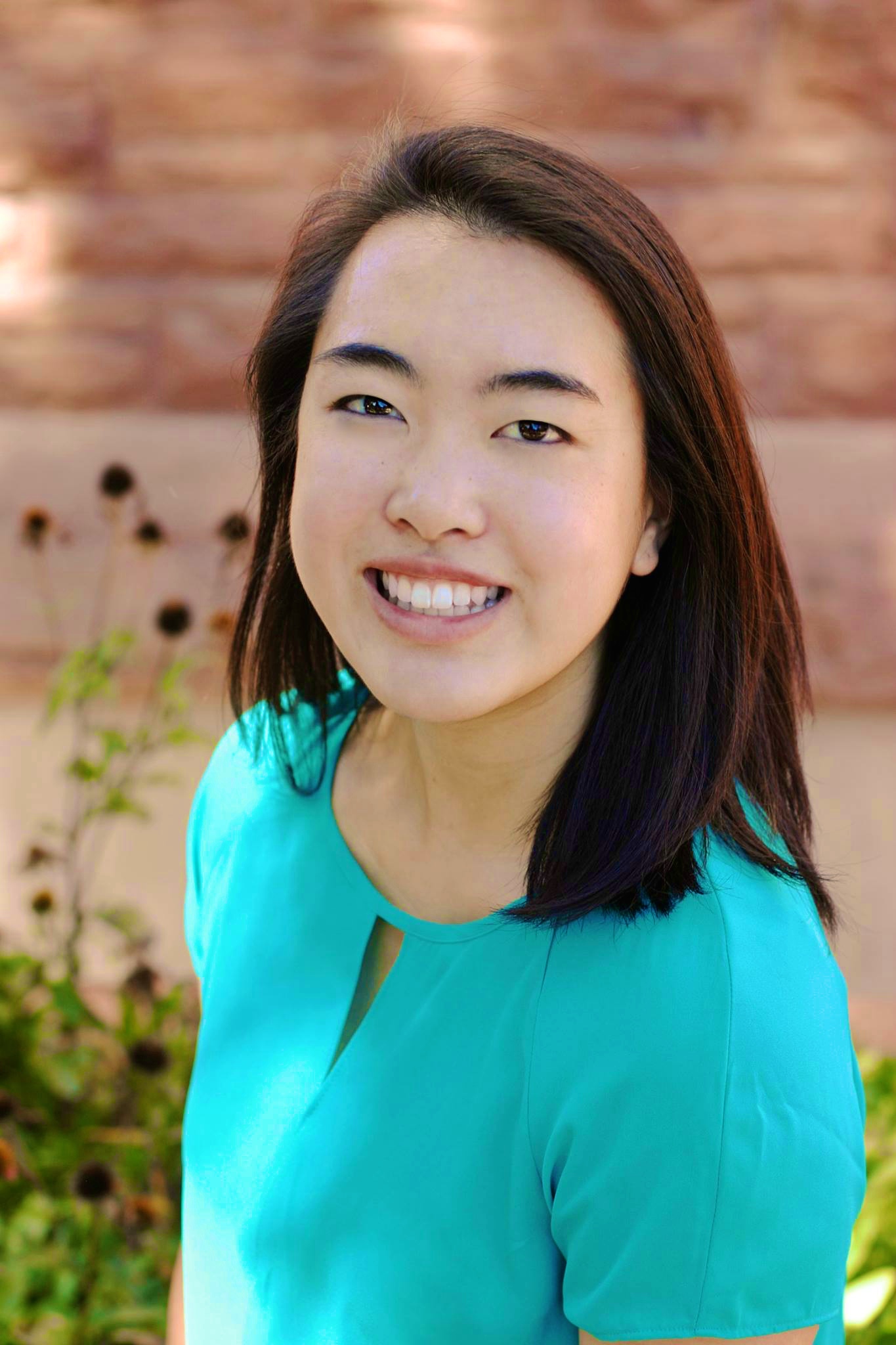
at the forefront of change
The child of two parents in STEM, Emily Wong ’16 grew up knowing STEM “are fields you can succeed in, do something different every day and solve problems that the world is facing.” For her, choosing a career in engineering was a no-brainer.
With a bachelor’s degree in mechanical engineering, Wong now works as a design project engineer at McKinstry in Seattle, a company she said she chose partly because of their commitment to diversity in the workplace.
“I knew going in that [McKinstry] hugely supported women in engineering and would do whatever they could to hire them, grow them and promote them from within,” she said. “The support I get from my engineering group and across the company is amazing.” Specifically, McKinstry is aiming for a 50-50 ratio of men to women in her engineering group, which Wong said is “unheard of in this industry.”
Still, women shoulder much of the responsibility of making changes in the company. “It’s definitely not that we are given all the support that we need,” Wong said. “We are given this room to make progress, but we still have to work our butts off to actually enact that change.”
Part of that work includes the creation of networks of women within the company, as well as speaking up when the company or vendors make decisions or plan events that may discourage women from participating.
Wong said her participation in residence life and the Society of Women Engineers while at Mines prepared her well to face these challenges. “They were how I built up a lot of my skills in dealing with people,” she said. “I learned a lot of innovative thinking. How can I solve this problem in a way that someone else hasn’t solved it before?”
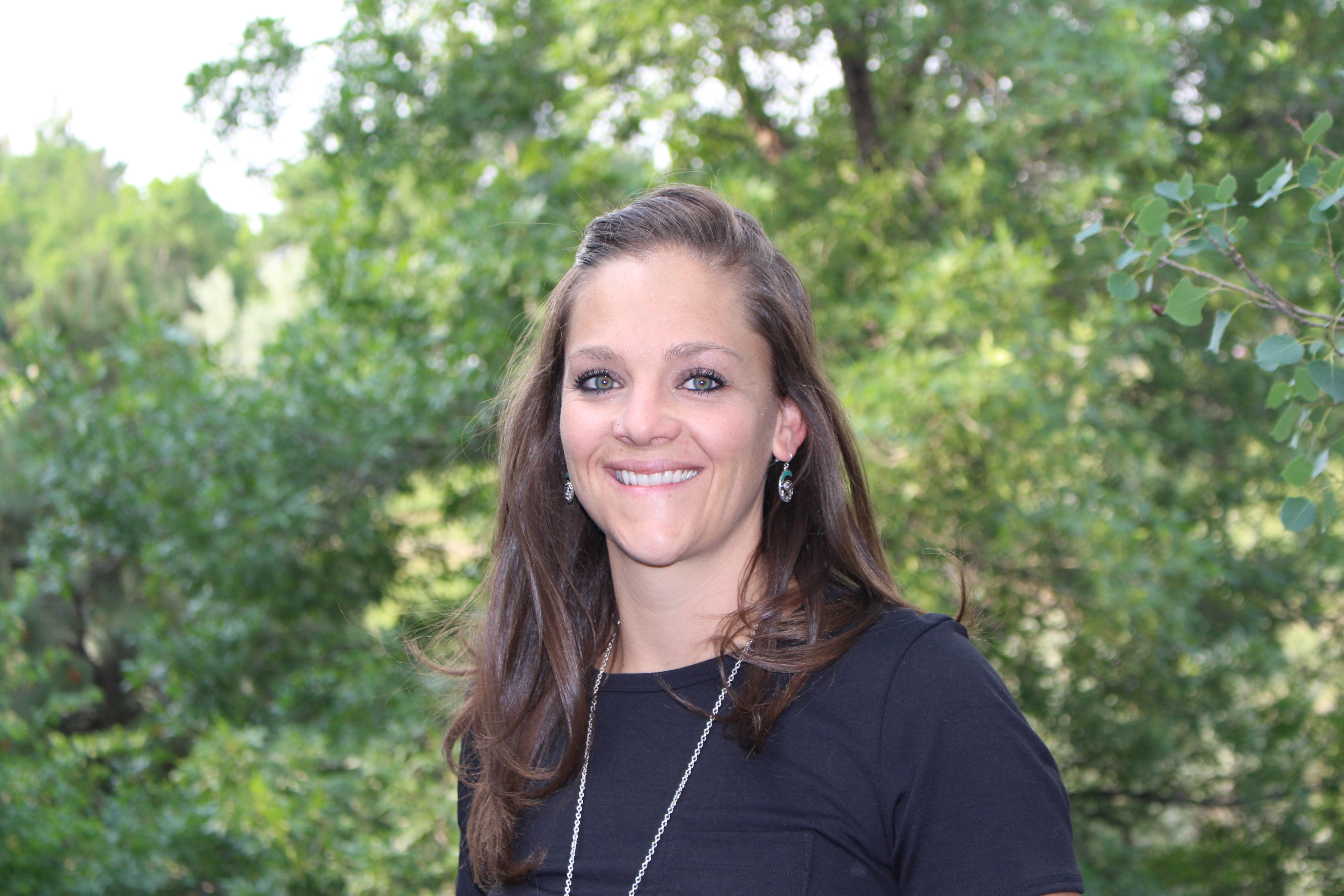
doing it all
When Beth Hutchinson ’07 was a sophomore at Mines, she made the difficult choice that engineering wasn’t for her. Still, she knew she wanted to stay at Mines and stay relevant to the industry, so she decided to pursue her degree in economics and business instead.
Today, Hutchinson works closely with engineers in her configuration management role at United Launch Alliance. It’s that struggle at Mines, she says, as well as the school’s emphasis on teamwork and problem-solving that has prepared her to face both the professional and personal challenges in her career.
“When you find that adversity, having already been there and done that kind of thing sets you up to understand, all right, here’s what I need to draw on, and here’s how I’ll get through it,” Hutchinson said.
As someone who is used to being the only woman in a room of 20 or more coworkers—and, often, the only person under the age of 50—Hutchinson, who has three young children, acknowledges there are many challenges still facing women in STEM. Even though there seems to be more support for women these days (Hutchinson works an abbreviated schedule of four days a week to spend more time with her kids), she said she still feels as though she must fight the stigma of being a working mother.
“I feel like I often have to overcompensate and do more, work harder,” she said. “I never want someone to hold that as something over me—that I’m not getting the work done or I’m getting special treatment.”
Still, Hutchinson believes at least some of her worry is self-imposed. She’s gotten a lot of support from both male and female superiors, and the industry is changing. “I think there’s been a lot of societal pressure to really empower women and to bring [their issues] more to light,” she said.
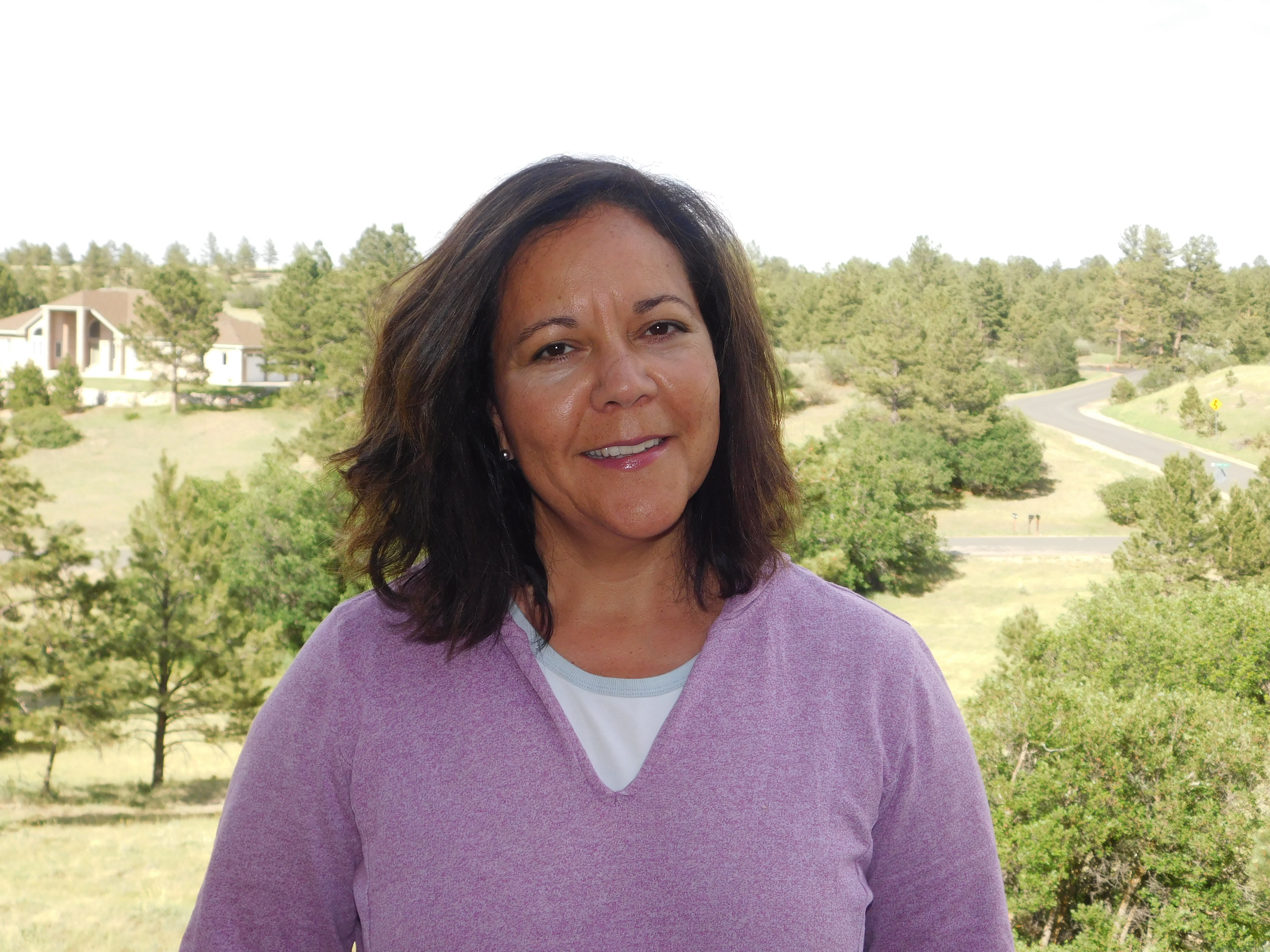
opening doors
Sylvia Botello Andrus ’89 had advanced beyond the available math classes at her high school by her junior year, so her math teacher, Mines alumnus Shiegeo Hayashi ’50, created an independent study for her. He encouraged Andrus to pursue engineering and even recommended her for a Mines scholarship.
Andrus obtained her degree in mechanical engineering as a first-generation college graduate and has spent most of her career in a variety of roles in the field, starting with ARCO Alaska, where she trained as a petroleum engineer. She has also worked as a field production engineer and a facility engineer, including working in a gas field that powered a main power plant south of Anchorage and fed natural gas to a large portion of Alaska. She is currently a production engineer with ConocoPhillips in Colorado, where she has been for the past four and a
half years.
Andrus said she was used to being one of only a few women engineers in the field. As a result, she looked for support from other co-workers and felt it was important to make every effort to work hard and do the job well. She also believes talking to other women helps with a sense of camaraderie, as well as with gaining useful information for how to navigate female-specific issues in the industry.
Andrus says Mines’ reputation has taken her a long way in her career and credits the problem-solving she learned there for her ability to face the challenges she found in her work. “[Attending Mines] was a really hard process for us to go through,” she said. “Once you were done with Mines, you felt like anything else was going to be easy.”
Andrus’ daughter, 16, has participated in Girls Lead the Way, a program that brings high school girls to the Mines campus to learn about career opportunities in STEM. Both Andrus and her son, who also currently works as an engineer, are encouraging her to enter the field.
“One of the things about STEM is that it’s so versatile,” Andrus said. “You’re going to have the doors open for any field.”
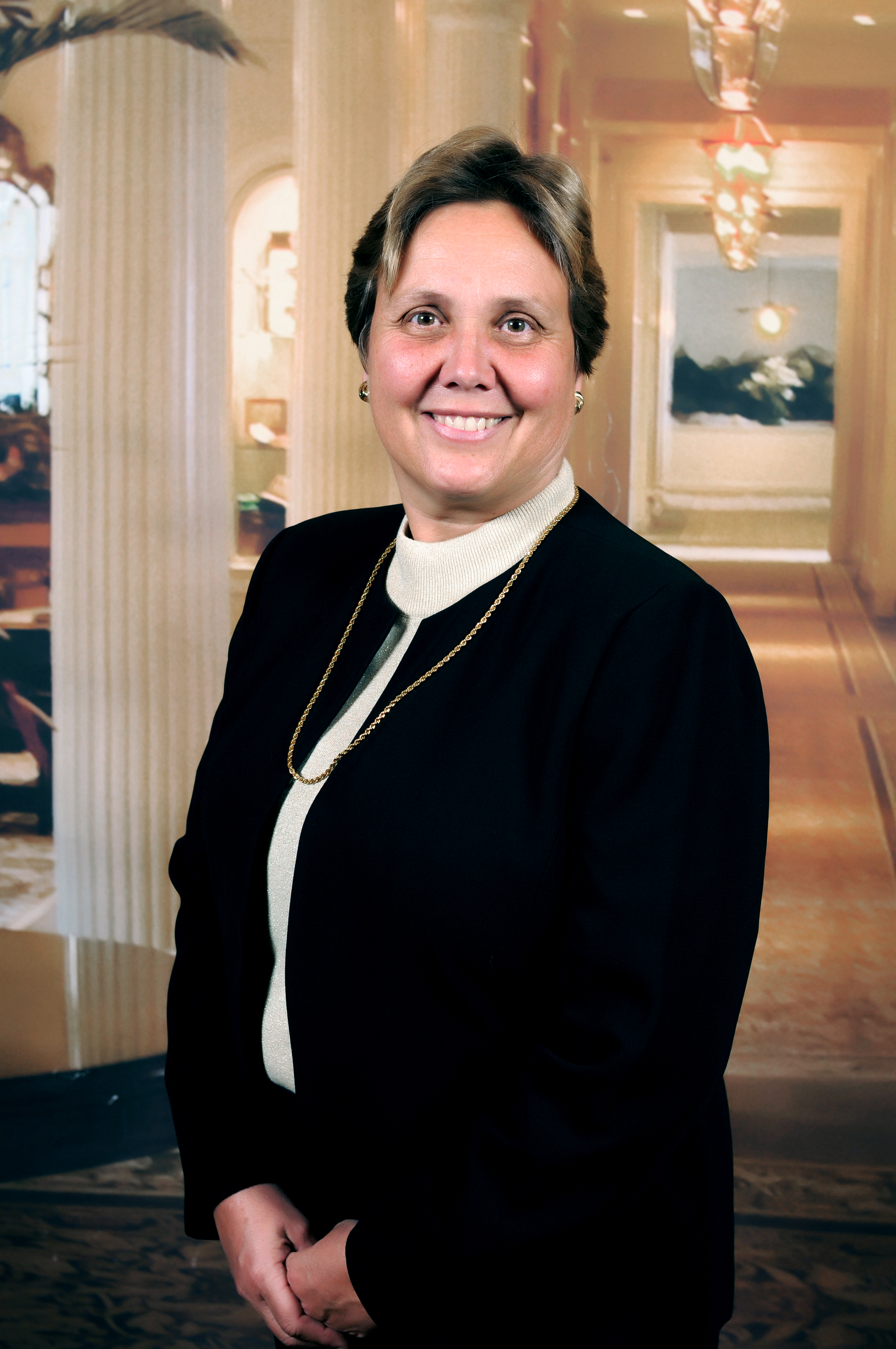
be the best
Cathy Farmer’s ’79, MS ’81 success in her field started at Mines, where she was first in her class at the end of her freshman year and her classmates elected her “Mr. Engineer” in 1979.
“I loved the fact that all the guys in my class voted for me and insisted that the ‘Mr. Engineer’ title not be changed in any way,” she said. “The engineering professors who had their doubts about women in the profession learned that the world was changing.”
Farmer graduated from Mines with a bachelor’s degree (and a number of awards) in geological engineering and a master’s degree in geology. In her first job as a roustabout with Amoco Corporation in an oil field in Wyoming, she was the first woman engineer to be in the field on that site, and her truck got a flat tire on her very first day. “Every guy in the field came to watch me change it,” she says. Of course, she changed it without a problem.
“Once you proved yourself,” she said of working in the field, “there was no issue.”
Working in management was a different story, Farmer said. She chose to stay on the technical side of the business, because she preferred geology. “It wasn’t hard proving my technical abilities,” she said. “I did not fear competing head on, toe to toe, and kicking butt.”
Farmer worked with BP Amoco around the world for more than 30 years, and her career involved such highlights as recommending the discovery of several large gas fields in Trinidad and Tobago. She retired from BP in 2009 and went to work for ConocoPhillips as a Geoscience Fellow. In 2014, Farmer recommended drilling the SNE-1 well in Senegal, which turned out to be the largest oil discovery in the world that year.
Farmer recently retired for a second time and works occasionally as an independent consulting geologist. Her full-time occupation now is breeding racing quarter horses and managing two ranches. For women considering or entering a STEM field, Farmer’s advice is “Be the best, and be prepared to prove it.”
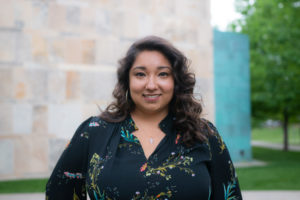
“People often say women are more emotional, but I think that gives us a different perspective on science—it’s not all about numbers and calculations. It’s also about human life in general.”
Olivia Cordova ’18
Don’t miss our interview with one of Mines’ most recent alumnae (and who grace’s this issue’s cover), Olivia Cordova ’18.
Read her take on what it’s like to be a woman entering the workforce, a first-generation college graduate and what her plans are for the future in our Q&A.


